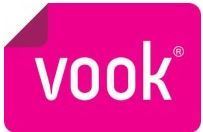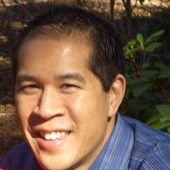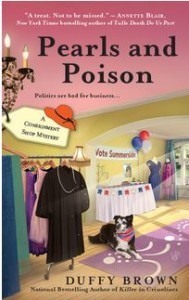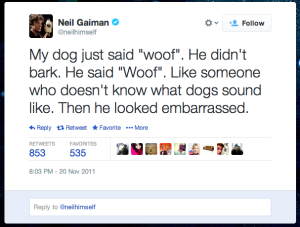Riley Adams's Blog, page 138
March 18, 2014
Whales, Mermaids and Your Publishing Long-Tail
by Greg Strandberg, @gpstberg
Authors come in two types: whales and mermaids.
Whales have been at this game called publishing for some time and know the tips and tricks. Mermaids, however, are new to these waters, and often feeling like they’ll drown in them.
So which of these creatures are you, and what can be done about it? Let’s explore both, as well as how you can master your publishing long-tail.
Mermaids

Mermaids flit about. When they’re not sitting alone on a rock, often doing nothing more than sunning themselves and showing off for the rest of the world, they’re moving this way and that, typically without any real purpose.
You can see Mermaids’ disdain and confusion just in their basic anatomy. They’ve got the head and body of a person, but below they’re a fish.
See, they’re just getting into the current trends of self-publishing, just making that transition. It’s hard to become something fully when you first dip your tail in the water, and that’s why we have to expect mistakes and often annoyances from mermaids.
This can be in the form of talking of your book so much it becomes spam to the very audience you’re trying to reach, all the way to focusing on one book and its promotion solely, nearly always at the expense of the more important work of writing more books.
Really, it’s a cross between two worlds with a mermaid. On the one hand they have the human characteristics so indicative of those who know nothing of self-publishing (think readers here – yeah, they buy eBooks, but how many know what the Amazon publishing screen looks like?), and on the other you’ve got the fish who’s learning to swim.
It’s no surprise they’re sunning themselves on rocks all day – publishing is a hard business, and even finding a helpful blog like The Book Designer, Joe Konrath’s Blog, or Elizabeth Spann Craig’s here, can make you just want to give up before you get started.
There’s an ocean of information out there, and when you’re on the edge of the beach looking out it can seem impossible, the idea of swimming across it, and yet that’s what whales do, and they do it a little bit each day.
Whales

Mermaids flit about quickly from one fad to the next. Whales on the other hand move slowly, purposefully, and have a final destination in mind.
Each year whales migrate, setting themselves up for a long and arduous journey. Sure, it has its perils, like attacks from sharks or even the deprivations of man, but in the end they reach their goal.
They do this together. Rarely if ever will you find a whale making the trek on their own. Oh sure, it happens, but we all know it’s the exception to the norm. And the only time you’ll see a whale on a beach sunning itself is when there’s a problem.
That’s probably the biggest obstacle to overcome for mermaids – their penchant for sunning themselves and getting nothing done. Sure, 500 words here and 250 there will add up, but not compared to the monumental distances whales are charting each day. They know how to move, and they do so slowly, methodically, and with firm goals and targets in mind.
Whales, Mermaids and Your Publishing Long-Tail
Mermaids are smaller creatures, measuring on average just 2 to 3 feet in length. Their tail, therefore, is rather short.
Whales are much larger, often reaching lengths of 30 to 50 feet or more. The tails they command are long, mighty, and make waves.

When it comes to self-publishing, it’s all about the long-tail. Sure, sites like BookBub and other promotional boosts will give you a short-term shot in the tail, but it’s sustained exposure more than short bursts, continual movement onto the market rather than brief splashes, that really leave a high-water mark.
So how can you ensure your tail is making waves long after you’ve passed by? By jumping off the rocks and moving away from the safety of shore.
Turning Mermaids into Whales
The thing with mermaids is deep down they want to be whales. This is quite possible as they’re already halfway through the transformation.

So how do they get rid of that hideous and worrisome upper-half, you know, the one that doubts, procrastinate, and does just about everything imaginable to keeps them from getting onto that long trek enjoyed by whales everywhere?
With blogs.
Yes, it’s that simple.
The only real difference I can see between mermaids and whales (besides appearance of course) is their level of knowledge. Commitment and longevity come later.
And that knowledge comes from blogs. In the old days, before self-publishing took off, you had quite the limited options when it came to educating yourself about publishing.
First of all, what resources did you have? The library and maybe some books on publishing from Waldenbooks? Give me a break.

Not only were those resource controlled by the major publishers – ensuring your view would be skewed toward their way of thinking – but they were often so general as to be of little use when it came to the things we really know are important today – genre, targeting your audience, and developing your own unique author brand.
Second, the knowledge was so static. Well, what can you expect? They were print books, perhaps with one or two coming out a year, choreographed and staged so no toes would be stepped on come launch day. And if the knowledge isn’t updating more than once or twice a year, even quarterly, what good is it?
I guess it’s good if you’re living in the dark ages, but few are anymore. And that’s why blogs can make mermaids into whales.
The depths of knowledge you’ll find on self-publishing blogs ensures you’ll never have to pay a dime to get onto the bestseller charts. Take a deep breath and dive down deep, immersing yourself into all that you find.
I bet you’ll charge back up into the bright light with purpose, smacking your publishing long-tail down not on some cold and uncaring rock, but on shimmering waters for all to see.
Greg Strandberg was born and raised in Helena, Montana. He graduated from the University of Montana in 2008 with a BA in History.
When the American economy began to collapse Greg quickly moved to China, where he became a slave for the English language industry. After five years of that nonsense he returned to Montana in June, 2013.
Greg is currently running for the Montana House of Representatives, House District 98.
When not writing his blogs, novels, or web content for others, Greg enjoys reading, hiking, biking, and spending time with his wife and young son.
Notes
Berk, Ari. The Secret History of Mermaids and Creatures of the Deep. The Templar Company, Ltd.: Somerville, 2009.
Buffington, Kath, et al. Learn All About Whales: A Learning Bank of Information and Irresistible Activities That Teach About This Fascinating Nonfiction Topic. Scholastic, Inc.: New York, 1992.
Conway, D.J. Magickal Mermaids and Water Creatures: Invoke the Magick of the Waters. The Career Press, Inc.: Franklin Lakes, 2005.
The post Whales, Mermaids and Your Publishing Long-Tail appeared first on Elizabeth Spann Craig.
March 16, 2014
Maintaining Momentum as We Write
By Elizabeth S. Craig, @elizabethscraig
I was sitting with the other parents watching my daughter’s horseback riding lesson when one of the moms there asked me if I was always inspired when I write each day.
I always hesitate when I answer this question. It sounds awful to say that I’m rarely inspired when I write. For me, it’s more of a discipline. Aside from those wonderful, feverish moments when I’m scrabbling around in my pocketbook for paper and a pencil because a fabulous idea hit me…I’m just sitting down and focusing on creating a story, inspiration free.
Although I give inspiration short shrift, I do believe in momentum. I don’t know if there’s a psychology to momentum or not, but I do know that if I’m on a roll, I should probably keep writing. And if I am hearing my tardy Muse, I should keep cranking out pages until she wanders off again. I’ve watched enough football with my husband to realize that if our team is ahead and something destroys that precious momentum, it’s almost as if a different team has possession of the ball.
Things I do to maintain momentum:
I don’t put in chapter breaks until I’ve finished a first draft.
I don’t edit until I’ve finished the first draft.
I write in very short segments of time so that I won’t get distracted until the timer goes off.
If I run into something I need to research, I mark it and research it later and keep writing.
If I’m stumbling through description (which I do 99.9% of the time), I layer it into the second draft.
If I’m staring into space trying to conjure a setting, I add it in later.
If I can’t remember the character’s eye color, I mark on the manuscript with Track Changes to check it later, pick an eye color and keep writing.
If I’m feeling stuck because I know the huge scene I’m about to write will make or break the book, I’ll skip the scene and pick up with the story action right after that scene would have ended. I use the highlight feature on Word to show there is missing text.
If I’m not in the right frame of mind to write a particular scene (I’m feeling on top of the world and I’m writing a funeral scene, I’m feeling blah and I’m supposed to be writing a wedding), then I’ll skip it and keep going. I’ll, again, use Word’s highlighter or Track Changes to indicate missing text.
To pick up the next day with more momentum than starting with nothing, I’ve used Hemingway’s trick of stopping a writing session in the middle of a sentence.
These won’t work for everyone, but some might be worth a go if you feel yourself getting stuck. How do you keep up momentum as you write your books?
Image: MorgueFile: Hotblack
The post Maintaining Momentum as We Write appeared first on Elizabeth Spann Craig.
March 15, 2014
Twitterific Writing Links
by Elizabeth S. Craig, @elizabethscraig
Twitterific links are fed into the Writer’s Knowledge Base search engine(developed by writer and software engineer Mike Fleming) which has over 23,000 free articles on writing related topics. It’s the search engine for writers.
The Art of Writing Tension: http://ow.ly/unjhr @sjaejones
How to write a novel: http://ow.ly/unir7 @tannerc
Writing—So Easy a Caveman Can Do It: http://ow.ly/uniqV @kristenlambtx
‘How Amazon Saved My Life’: http://ow.ly/unja3 @JessicaPark24 @pubslush
YA Dystopia Recipe: http://ow.ly/unjqm @BonnieCalhoun
Lee Child’s 3 Tips For Building A Loyal Fan Base: http://ow.ly/unjjh @woodwardkaren
A Free Sales-Tracking Tool for Writers—Vook’s Author Control: http://ow.ly/uA7m9
The Mirror Moment: A Method for Both Plotters and Pantsers: http://ow.ly/unjBT @jamesscottbell @kmweiland
5 Easy Steps to Write the Perfect Travel Article: http://ow.ly/uniMI @joebunting
Drawing a map for story inspiration: http://ow.ly/uA1hR @camillelaguire
Why and How to Pitch Story Ideas to Magazines: http://ow.ly/unjj7 @111publishing
Is Your Writing Flat? What to Do: http://ow.ly/unir2 @JanalynVoigt
The Non-Autobiographical You: http://ow.ly/uA1ar @jemifraser @WriteAngleBlog
In Defense Of Adverbs: http://ow.ly/uniqB @maddiecrum
Royal Oak B&N Closure Doesn’t Mean Bookstores Are Dying…Barnes And Noble Is: http://ow.ly/uxZGE @ETFlint @CBSDetroit
A writer on the so-called advantages of going the trad-pub route: http://ow.ly/uxWHL @hmward @passivevoiceblg
8 Common Mistakes Writers Make at Conferences: http://ow.ly/ulGOy
Amazon Publishing Grows to Include German Language Titles: http://ow.ly/uy1WY @Goodereader
What do we do if Amazon stops growing? http://ow.ly/ulGP7 @thefuturebook @philipdsjones
SleuthFest Recap: http://ow.ly/ulEdQ @authorterryo
The commercial importance of indie books and possible divide among readers: http://ow.ly/uy6dW @Porter_Anderson @MikeShatzkin
The Introvert Myth: http://ow.ly/ulFQu @According2Jewls
Should You Self-Publish Or Not? http://ow.ly/ulFjy @literaryeric
What Makes a Story Event a “Turning Point”? http://ow.ly/ulFiM @jamigold
3 Tools For Making Characters Come Alive: http://ow.ly/ulEek @KerrySchafer
Are You Meeting Your Readers’ Expectations? http://ow.ly/ulEeK @LaurieBoris
Quick Tip: How to Spot Passive Voice: http://ow.ly/ulHuu @Shay_Goodman
Getting Creative on Demand : http://ow.ly/ulGh7 @diymfa
The Five Stages of Grief Can Help Your Writing: http://ow.ly/ulGik @epbure
Character Type: Bully: http://ow.ly/ulGhx @gointothestory
Vook’s @MattCavnar and @Porter_Anderson live-chat re free tool for writers to track sales across retailers: 11 a.m. ET, 3 p.m. London…
A Big Problem with Free eBook Samples: http://ow.ly/ulFja @Goodereader
How Public Libraries Are Solving America’s Reading Problem: http://ow.ly/uxXrd @forbes @dvinjamuri
How to Build an Author Newsletter Mailing List the Right Way: http://ow.ly/ulFRn @jeanoram
Making the Sale: How to Sell More Books on Your Own Website: http://ow.ly/ulGNL @bookgal
How to Create an Antihero That Readers Love: http://ow.ly/ulHbz @writersdigest
Are creative writing classes ‘a waste of time’ ? http://ow.ly/uiAoI @guardianbooks @alisonflood
Writing Longhand: http://ow.ly/uvhFS
5 Tips on Selling through Independents Bookstores: http://ow.ly/uiBBz @Andilit
Are Your Characters Living in the Moment or Watching it Pass By? http://ow.ly/uiBb8 @janice_hardy
Diversify Your Publishing: Why Amazon’s ACX Royalty Change Matters: http://ow.ly/uiBuw @ChuckWendig
Screenplay Submissions Dos and Dont’s : http://ow.ly/uiEDH @scriptmag @bang2write
Could We Make a Good Editor? http://ow.ly/uiBBi @jamigold
5 Ways to Hook Your Readers: http://ow.ly/uizTE @Janice_Hardy
The Writers Guild Shares Pages from the 101 Best Screenplays: http://ow.ly/uiB3r @nofilmschool
Indies for Indies: 1 Writer’s Partnership with a Local Bookstore: http://ow.ly/uiEK0
The Chain Reaction from Leaving Comments: http://ow.ly/uwcZS @megwolfewrites
An agent on writing the first book in a different genre: http://ow.ly/uiAXg @Janet_Reid
How To Get More Amazon Book Reviews: http://ow.ly/uiErY @jonathangunson
What do you think of turning longer books into short chunks for readers? Discuss at #EtherIssue now (11 a.m ET, 3 p.m GMT).
15 advanced online tools for writers: http://ow.ly/uiAnI @mstibbe @KatelynPiontek
What readers want from authors on social media: http://ow.ly/uiBaC @tobywneal
What’s Changed in Publishing and What’s Stayed the Same: http://ow.ly/uiApM @rachellegardner
7 Questions Writers Should Ask Before Publishing: http://ow.ly/uiARy @billpetrocelli
Crime fiction in which the action takes place in 24 hours or fewer: http://ow.ly/uuXjB @mkinberg
18 Things Highly Creative People Do Differently: http://ow.ly/uizSB @huffpost
Should Writers Mix Business And Friendship/Family? http://ow.ly/uiBEu @rsguthrie
3 Ways To Gain Confidence As A Freelance Writer: http://ow.ly/ugILk @LFormichelli
C Is For Non-Compete: http://ow.ly/ugHVw @stevelaubeagent
Can you make kids love books? http://ow.ly/ugG0t @passivevoiceblg
The importance of boundaries in our writing life: http://ow.ly/ugHm1 @Dannie_Morin
Finished a novel… where do you find the next idea? http://ow.ly/ugG0h @Roz_Morris
Developing a Writing Plan in 4 Easy Steps: http://ow.ly/ugFZn
Is your character stressed? http://ow.ly/ugIK1 @Writers_Write
Think Local: Why It’s Important for Book Sales: http://ow.ly/ugHmn @andilit
Self-Publishing? Editing Tips for a Quality Book: http://ow.ly/ugHmO @thewritelife
Increase Your Writing Productivity: the productivity pyramid: http://ow.ly/ugJjS @stdennard
Can You Make a Bad Speaker Good? http://ow.ly/ugJMt @RobBiesenbach
Short Reads: Breaking Longer Reads Into Short Segments for Readers: http://ow.ly/usyvW @Porter_Anderson @jenny8lee @ygoldlove
Attack of the Internal Editor: http://ow.ly/ugFZo @DiamondLB
6 Ways to Become a Nonfiction Book Ideator: http://ow.ly/ugHW0 @ninaamir
The blindspot of novel writing– http://ow.ly/ugGQv @rxena77
Is Your Blog Trapping You or Helping You Fly? http://ow.ly/ugGPU @cateartios
Trust your Readers: http://ow.ly/ugHVa
Worldbuilding: It’s More Than a Pretty Map: http://ow.ly/ugIlA @KameronHurley
Setting as Part of Story: http://ow.ly/udtVt @mooderino
Variables publishers consider when deciding the size of a writer’s advance: http://ow.ly/uectp @wendylawton
3 Things Successful Writers and Editors Do: http://ow.ly/uduvX @stacyennis
10 tips for finding a good ghostwriter | Help With Publishing http://ow.ly/udttR
Your Book Launch: Marketing Methods and Ideas Used by Top Authors – A Study http://ow.ly/udumR @jimhbs
What If Literary Agents Don’t Want Your Novel? http://ow.ly/udNUK @EmilyWenstrom
The Reality of Guest Blogging: http://ow.ly/udtUQ @jeffbullas
5 Dual-POV Writing Tips: http://ow.ly/udtVg @ava_jae
Literary pet peeves: the best of the worst author blunders: http://ow.ly/udPCD @clothesinbooks @guardianbooks
5 DIY Tips When Self-Publishing Your Book: http://ow.ly/udtR9 @PhillyTheBoss
Listicles, Copy, Content, and Essays: How a Freelance Writer Makes a Living: http://ow.ly/uecPy @hellothefuture
The Neil Gaiman Guide to Social Media: http://ow.ly/uqcBL @storyrally
10 Risks You Run if You Don’t Proofread Your Manuscript: http://ow.ly/uduCQ @KathyIde
10 Publishing Trends: An Indie Author’s Take: http://ow.ly/udOtj @huffpost
On keeping up with our blogs: http://ow.ly/upFJG @JacksBlackPen
From Pathetic to Professional: 8 Ways to Beat the First Draft Blues: http://ow.ly/udOi2 @RuthHarrisBooks
Where to Advertise Your E-Books: Discounted, Free, and Otherwise: http://ow.ly/upEf1 @alexjcavanaugh
A writer finds outdated info in a current writer’s magazine: http://ow.ly/udOZ4 @mnmarcus
A look at how children’s games feature provide an interesting element in crime fiction: http://ow.ly/upGpD @mkinberg
6 Key Things to Consider When Developing Characters: http://ow.ly/uduNi @jodyhedlund
What 1 writer has learned about writing: http://ow.ly/ucuDY @zen_habits
Write What You Like: Why “Write What You Know” Is Bad Advice: http://ow.ly/ucwn3 @endovert
Putting yourself into your memoir: http://ow.ly/ucuEp @Belinda_Pollard
23 Problems Aspiring Screenwriters Face On A Frequent Basis: http://ow.ly/ucvn6
Great Story Idea – But Too Short for a Book? http://ow.ly/uctwF @111publishing
Slaying The Blank Page: http://ow.ly/ucws1 @ScrivK
7 Ways Authors Can Organize Their Pre-Writing: http://ow.ly/ucvmx @vgrefer
Why Apple’s iBookstore sucks http://ow.ly/uniqA @Hans_Hirschi
How to Create Bestselling Book Ideas: http://ow.ly/unjqx @bookgal
Every Writer Needs a Tribe (Have You Found Yours?) http://ow.ly/uniMu @jeffgoins
Baffling Dictums: On the Rules of Writing http://ow.ly/unjq0 @The_Millions
Consider Serializing Your Novel: http://ow.ly/uniMQ @angee
5 Dual-POV Writing Tips: http://ow.ly/uol8Q @ava_jae
8 Lessons1 Writer Learned By Self-Publishing: http://ow.ly/uoldU
Writing Novels that Read Like Short Stories: http://ow.ly/uol0X @ventgalleries
Tips to Rekindle the Romance of Writing: http://ow.ly/uomOO @ediemelson
Before the First Word: The Power of Discovery: http://ow.ly/uomQS @LisaCarter27
10 Reasons Self Published Authors Will Capture 50 Percent of the Ebook Market by 2020: http://ow.ly/uomOX @markcoker
Should You Self-Publish Your First Book? http://ow.ly/uol8O @whatsupsmiley
25 Tips to Help You Keep Writing: http://ow.ly/uomQa @MaryBuckham
The Pros and Cons of Writing Fiction on Paper 1st: http://ow.ly/uokXj @vgrefer
5 Reasons to Kindle-ize Nonfiction: http://ow.ly/uomPs @amyshojai
10 Ways To Up Your Word Count: http://ow.ly/uomEg @fantasyfaction
Plot Essentials: Inciting Incident: http://ow.ly/uoldK @ava_jae
3 Habit Building Apps for Writers: http://ow.ly/uols9 @SkyeFairwin
Big names in the art world offer their top 10 tips: http://ow.ly/uole4 @The_Feeney
Untranslatable Words: http://ow.ly/uomQG @womenwriters @ellafsanders
E.B. White’s poignant explanation for writing Charlotte’s Web: http://ow.ly/uomHC @io9
Artists and Addiction: http://ow.ly/up6XV and http://ow.ly/up6Y5 @DouglasEby
6 Great Blogs for Indie Authors: http://ow.ly/up7kJ @PublishersWkly
5 Habits that Set Great Writers apart from the Rest: http://ow.ly/up8OI @SandraPeoples
Being a Yahtzee Writer: http://ow.ly/up7k6
The Great Internal Monologue Debate: http://ow.ly/up8Oc @MaryVeeWriter
3 Things to Set You on the Path to Publishing Success: http://ow.ly/up6Yr @barrylancet
Diagnosing Problem Stories: http://ow.ly/up91W @janice_hardy
The one really scary thing every writer should learn to do: http://ow.ly/up8Od @Belinda_Pollard
5 Ways To Fall In Love With Your Character: http://ow.ly/up8OC @bang2write
10 Things That Every Brand New Creator of Science Fiction Should Know: http://ow.ly/um7Zm @io9
What should a writer assume from lack of response to queries? http://ow.ly/um7Nz @Janet_Reid
Discoverability, or The Two Hundred Copy Pocket: http://ow.ly/um7ph @Dario_Ciriello
10 Reasons Indie Authors Will Capture 50% of the Ebook Market by 2020: http://ow.ly/um7gg @markcoker
10 Reasons 1 Editor Rejects Short Stories: http://ow.ly/um78R @manzanitafire
Learning to be a Novelist: http://ow.ly/um6fu @megwolfewrites
Sentence Length: Is Shorter Always Better? http://ow.ly/u8KIM
A writer in residence wish list: http://ow.ly/u8KEp @EliseVanCise
15 Quick and Dirty Writing Tips: http://ow.ly/u8KIO @WritingForward
The Year-Long Book Launch: http://ow.ly/u8KsY @DanBlank @writerunboxed
The 5 Reasons Writers Write: http://ow.ly/u8KDt @AnneBorrowdale
Is Your Subconscious Mind Setting You Up for Failure? http://ow.ly/u8KIE @kristenlambtx
Becoming a Self-Published Author: http://ow.ly/u8Ktg @janice_hardy
How Pre-Made Book Covers Inspire Writing: http://ow.ly/u8KEi @write_practice
What It Is To Write : http://ow.ly/u8KSf @raulfelix275 @thoughtcatalog
What every writer needs to succeed: http://ow.ly/u8Kt6 @hoodedu @salon
How to Keep Your Writing Warm When You Can’t Write | Holly Robinson: http://ow.ly/u8KVb
The 6 Motives of Creativity: Mary Gaitskill on Why Writers Write: http://ow.ly/u8KDl @brainpicker
How to Write a Blog Post Every Single Day: http://ow.ly/u8Ktc @gsosk
1 writer would rather be a successful writer than a successful female writer: http://ow.ly/u8Kt9 @McDougallSophia @NewStatesman
Writer’s block? 5 easy jumpstarts to get you flowing: http://ow.ly/u8KOx
Amazon Hack: Get Your Book into the Hands of an International Audience: http://ow.ly/u8L3s @bookgal
Differences Between Commercial and Literary Fiction: http://ow.ly/u3Mip @AnnieNeugebauer
7 Activities to Keep Kids Busy While You Write: http://ow.ly/u3L9Q
5 Successful Authors On How They Overcame Creative Blocks To Write Their 1st Book: http://ow.ly/u3OAh @fastcompany
Pitching to the new Gatekeepers: http://ow.ly/u3KOe
Tech Tips for Writers: Google +: http://ow.ly/u3Lb0
Harriet the Spy: The most unlikable hero in children’s lit : http://ow.ly/u3NY4 @magiciansbook @salon
So-Called Screenwriting ‘Rules’: Flashbacks: http://ow.ly/u3Mhh @gointothestory
“Writing a book by committee is a great idea in every way!” said everyone but the writer. http://ow.ly/u3NY3 @rchazzchute
5 Reasons You Need a Mentor: http://ow.ly/u3MhJ @Xtal_Rose
Gadgets and Spreadsheets and Apps for Writers: http://ow.ly/u3KMK @RMFWriters
You have something special to say: Write with abandon: http://ow.ly/u3KMc @onewildword
3 Reasons Dialog is Important, 3 Reasons It’s Not: http://ow.ly/u3La2 @victoriamixon
Special Needs in Strange Worlds –When Abilities Becomes Disabling: http://ow.ly/u3Mi4 @sfsignal
5 habits of productive novelists: http://ow.ly/u3MS9 @chrisrobley
Finding Voice in Middle Grade: http://ow.ly/u3Nvu @MLConklin
A Thousand Words: Writing From Photographs: http://ow.ly/u3Ofw @cncep @newyorker
Amazon, Goodreads, and the Death of Criticism: http://ow.ly/u3LaC @keithr34
50 Shades of Grey Matter: Creative Publicity for Authors: http://ow.ly/u1V4W @pubsmartcon
Status as Character Calling Card: http://ow.ly/u1W24 @mooderino
3 Keys of Self-Publishing: http://ow.ly/u1YcA @shelfmagazine
The Problem With Book Returns & How to Solve it: http://ow.ly/u1V4m @111publishing
Readers on what constitutes too much description: http://ow.ly/u1WKH @DianneDHarman
Miss You, SASE: On Postal Submissions: http://ow.ly/u1V5b @nickripatrazone @The_Millions
Creating a Rock Star Publishing Team for Your Book: http://ow.ly/u1Zb5 @miralsattar @BiblioCrunch
6 Ways to Survive Rewrite Hell: http://ow.ly/u1Z3a @shleyBdavis
The Only Thing Writers Can Control: http://ow.ly/u1W1h @DanaLeipold
Where to turn when it’s time to research: http://ow.ly/u1Z9W @erin_bowman
9 Tips on Pinterest for Writers: http://ow.ly/u1YCZ @LPOBryan
How to Use Subtitles for Targeted Book Marketing: http://ow.ly/u1W1A @BookMarketer
When is writing a good book a bad thing? http://ow.ly/u1X3n @stephenwoodfin
The biggest mistake in writing for children: http://ow.ly/u1YTo
Writing romance: imagery and characterization: can the two ever meet outside of English class? http://ow.ly/u1X3k @JadeLeeAuthor
10 Apps to Help You Stay Focused on Your Writing: http://ow.ly/u1WNQ @CaballoFrances
Launching a Book–By Throwing a Party: http://ow.ly/ufU6j @DuffyBrownCozy
Writing is a Selfish Task But It Needs to Be: http://ow.ly/u1W23 @nutschell
The Emotionally Healthy Publishing Career: http://ow.ly/u1V4y @SaraMegibow @janice_hardy
Why 1 Writer is No Longer Cautiously Optimistic about the Future of Publishing: http://ow.ly/u1a4x @passivevoiceblg
5 steps to self-publishing success: http://ow.ly/u1aBy @Bookbaby
Where Did Our love (of craft) Go? http://ow.ly/u1b8g @Jordanrosenfeld
How to deal with writer’s block http://ow.ly/u1bQh @tannerc
Show vs Tell: Talking About The Narrator: http://ow.ly/u1cgk @woodwardkaren
How To Earn More From Your Writing: Maximize Your Rights: http://ow.ly/u1cfx @writetodone
How To Cultivate A Creative Thinking Habit: http://ow.ly/u1aaF @fastcompany
Reaching Readers with Kindle Countdown: http://ow.ly/udtuh @podixon
The post Twitterific Writing Links appeared first on Elizabeth Spann Craig.
March 13, 2014
A Free Tool for Writers—Vook’s Author Control
By Elizabeth S. Craig, @elizabethscraig
I mentioned briefly in last Sunday’s Twitterific that I was a beta tester for a new tool for writers. Vook’s Author Control launched over a week ago. I wasn’t paid for my testing, but asked to give feedback and a fair review or endorsement if I liked the service.
I’ve blogged before that I’ve been frustrated with some of the business/financial aspects of publishing. For one, it’s time-consuming to track of income. That meant that I wasn’t doing a wonderful job keeping track of income, which meant that I had an unfortunate tax bill when I went to my CPA in February. I’ve made some changes since then. For one, I have a separate bank account that writing-related income is directly deposited to, so that it doesn’t mix in with our general household funds (a recommendation the CPA had made last year but that I was slow to follow up on).
But I still faced the slow tracking of income—in particular of my self-publishing, which is producing nearly 70% of my income. It’s nice to keep tabs on our income for a variety of different reasons: matching sales against payments, tracking trends/popularity of books or series, seeing how various books are performing at different retailers, experimenting with price points, and knowing what to put away for taxes. Oh—and it’s also handy to know what we’ll be paid 60 days later by these retailers.
But the process looked like this (sure this is familiar to most of you): login and open the financial tabs for Nook, Amazon’s KDP, Apple iConnect, Smashwords, and CreateSpace (ACX for me, also). Find units sold for the month-to-date. And…do a bit of mathematics. For KDP, I’m multiplying the price of each book times the units sold. Sometimes I also lowered or raised prices of the books in the middle of the month, so I had to take those differences into account, too. No, the math isn’t hard, yes, I used a calculator. But it’s time-consuming. And I made errors when multiplying. It was a pain, actually. Because I really just wanted the bottom line—how much income am I generating?
So when I was asked to try beta software from Vook—AuthorControl—as an early user, I was happy to give it a go. I was to test it and offer suggestions for improvement, report any issues, and give my thoughts.
Basically, you sign up through the Vook site. You give your login credentials for the various retailers that you work with (the site states that Vook uses industry best practices to encrypt data). Vook verifies your account. Then you have a single dashboard that reports sales for whatever period of time you want to focus on…and the results are in dollars and cents. We can see gross sales and net sales in addition to unit sales.
You can create graphs (pie chart, line graph, bar graph) to help understand the stats more clearly. And you can export your sales report to a .csv.
You can focus on a particular title or time period.
The first ten books are free to track…tracking more requires an upgrade to subscription plans.
Vook also offers a variety of other (paid) services for writers, including cover design, editing, and distribution, but writers are not required to purchase those services to use the free sales tracking.
I do feel a sense of relief that a lot of the unwieldiness of the process has been taken care of and that sales tracking is more streamlined (since sales tracking still isn’t my most favorite thing in the world to do…but important as a publisher and a small business owner). And it makes me feel more professional and on top of it.
For more information, Publishers Weekly also wrote about the service, here.
When you sign up, you’ll get tracking from the day you sign up, moving forward (so no historical data prior to signing up).
That’s my tip of the day… a helpful resource for writers. And I’m happy to answer any questions about it if I can. If I can’t, I can try to loop in some folks from Vook to help me out.
How much sales tracking do you do? How do you use sales tracking?
The post A Free Tool for Writers—Vook’s Author Control appeared first on Elizabeth Spann Craig.
March 11, 2014
Writing Longhand
By Elizabeth S. Craig, @elizabethscraig
One thing I’ve found with my writing is that my process tends to change or adapt through the years. It’s important to find what works, what helps us be more productive, and stick with that. Clearly, different approaches will work for different writers.
A big change, that I recently thought about when reading writer Victoria Grefer’s post, The Pros and Cons of Writing Fiction on Paper First, has been switching over from writing longhand to writing on a laptop.
When I first started writing, I’d write everything in a notebook and then later transcribe it into a computer. I tended to feel a lot more creative when I wrote in a notebook—and writing with a toddler around…a toddler who loved punching on computer keyboards…meant that it was easier to write around her.
Then I started getting contracts from publishers. I found that my old method wasn’t working as well for me. I felt as if I were doing twice the work by having to transcribe my longhand onto the computer.
Some things I enjoy about writing longhand:
It’s a lot more portable. It’s easier to cart the notebook around. I don’t feel quite as conspicuous in public when I’m writing in a notebook as opposed to a laptop.
Sometimes it’s the best way to get unstuck or make major progress on a book that I’ve been writing too slowly. Not sure if this is because I’m writing longhand, or because I’m frequently in a different location when I’m writing longhand.
Some book elements seem to come easier to me when writing longhand. I seem to write setting and description better that way.
You don’t get nearly as distracted by social media when you’re writing in a notebook.
I do light editing when I transcribe my longhand into my Word document. I’m not sure if this qualifies as a pro or a con, since editing is something I don’t ordinarily do until after I’m done with a first draft. Although the light editing I’m doing is fairly automatic and I don’t believe I’m overthinking it.
Sometimes I brainstorm better on paper than I do on the computer.
A few words of caution:
Unless you’re a really fast typist or not on any sort of a deadline, I try to cap my longhand writing to maybe six pages. Otherwise, I’ll have to not only spend time transcribing my work the next day, but I’ll also have to hit my word count for that day.
Don’t put off transcribing. Don’t wait until you have a full notebook and then transcribe it. And make sure you put your notebook in a special location. I’ve lost notebooks before and it’s terrifying.
Make sure you can read your own handwriting. :( This tends to be a problem of mine. Apparently, I should have had a career in medicine instead…
As I mentioned above, I try not to get sucked into editing until my first draft is over. If this is something that’s also a problem of yours (getting diverted by editing), then you might want to keep in mind when you’re transcribing your work that you’ll fix it later.
Do you ever write in longhand? How does that approach work for you?
Image: MorgueFile: Jessica Gale
The post Writing Longhand appeared first on Elizabeth Spann Craig.
March 9, 2014
The Neil Gaiman Guide to Social Media
Imagine millions of people tuning in to hear what you have to say.
Not because they have to, but because they want to. They’re ready to support your next project and spread your latest news. And you can reach them all with just a few keystrokes and a click.
This isn’t a fantasy. It’s Neil Gaiman’s reality.
Gaiman lives in social media nirvana. He has attention for what he does and admirers for how he does it. When someone is compelled to highlight his past tweets because he’s taking a social media sabbatical, you know he’s doing something right.
So is he an outlier? Or are there lessons from his success that can be applied to your own situation?
Let’s take a closer look.
The exception that proves the rule
At first glance, Gaiman often breaks from social media convention.
He talks a lot about himself, constantly promotes his work, and generates what seems to be an overwhelming amount of content. You’ve probably heard that the best way to engage a following is to put the needs of your audience above your own. Gaiman seems to do whatever he wants.
Appearances can be deceiving.
Gaiman isn’t attempting to connect with strangers. He’s delighting fans. These are the people who know his books and are curious about him, so when he tweets about an upcoming event or answers fan mail at the end of blog posts, he is fulfilling the desires of his audience.
That’s the difference between what Gaiman is doing and an unknown author just starting on social media. When you don’t have anyone listening, or anyone that cares, focusing on yourself isn’t going to get you anywhere. More updates on your blog or Twitter or Facebook will do little to change your anonymity.
So what should you do instead?
Remember what social media actually is
It’s just a tool. It won’t get you a readership by itself.
Do you want more followers on social media? Focus on your stories. Write more and better. Create wonderful fiction for someone that would find that fiction wonderful.
This is obvious. And yet, ask yourself:
Are you expending more effort on social media than writing?
Are you constantly reading the same social media strategies over and over?
Are you regretting the amount of time you spent on social media?
If you’ve answered “yes” to any of these questions, then perhaps you need to reassess what you’re doing.
Neil Gaiman seems to be witty, engaging, and a decent person. But do you honestly think that he has almost two million Twitter followers just because of that? Gaiman built a huge audience because of his storytelling, not because of his personality or social media tactics.
***

Don’t let the tool become the trap. The best way to become known for your writing is to write something worth reading. That won’t change even when social media does.
Jason Kong helps fiction writers with their online marketing. Subscribe to get free insights here.
The post The Neil Gaiman Guide to Social Media appeared first on Elizabeth Spann Craig.
March 8, 2014
Twitterific Writing Links
by Elizabeth S. Craig, @elizabethscraig

Twitterific links are fed into the Writer’s Knowledge Base search engine(developed by writer and software engineer Mike Fleming) which has over 23,000 free articles on writing related topics. It’s the search engine for writers.
I also wanted to mention a cool new tool for writers (free) that I helped to test drive before its release. Vook released a new ebook tracking tool that tracks sales across all major retail channels. Publishers Weekly wrote about it here . I liked that I didn’t have to pull up my KDP page, my Smashwords page, my iBookstore page, and my Nook page to get a sense of my sales for the last month, because it compiled them all…what’s more, it puts results in dollars and cents, which is helpful for the math-challenged like me. You can track up to ten titles for free.
When to Add a Scene Break: http://ow.ly/u9lGj @janice_hardy
Warning Signs that Your Character Is Acting Out of Character: http://ow.ly/u9luH @KMWeiland
What to do when you get an offer while your MS is still with other agents: http://ow.ly/u9mJX
The Fantasy Language Problem: http://ow.ly/u9mjO @DjangoWexler
Understanding the storytelling arc: http://ow.ly/u9luZ @nownovel
So-Called Screenwriting ‘Rules’: Protagonist and Shifting Goals: http://ow.ly/u9luP @gointothestory
The Artist’s Alphabet Guide to Writing About Your Art : http://ow.ly/u9lGz @ArtMktgMentor
How 1 Writer’s Day Job Helped Me Get Published: http://ow.ly/u9lYN @MKAlexander1
Intense and Marketable Novels? A Simple How-to: http://ow.ly/u9mjC @Jenslattery
Keep Writing—Sometimes You Have to Go Through the Junk to Get to the Gems: http://ow.ly/u9lZ9 @EdieMelson
7 Free Tools to Organize and Prioritize Your Writing Life http://ow.ly/u9lZ5 @thewritelife
3 Experiments You Shouldn’t Try: http://ow.ly/u9mjs @mythcreants
Checklist and Rulebook Casefile: Morally Ascending in Alien: http://ow.ly/u9mK0 @cockeyedcaravan
On Diversity Within Diversity: http://ow.ly/u9lG0 @ava_jae
Copywriting: A 3-Step Formula for Captivating Your Audience With a Few Opening Lines: http://ow.ly/u9lv0
Identifying our writing style: http://ow.ly/u9lFM @rfwriters
4 Benefits Of Using The KDP Select Program For Kindle Book Promotions: http://ow.ly/ucutV @bloggless
How Can We Identify a Good Editor? http://ow.ly/ucutw @jamigold
London Author Fair and the role agents might play in self-pub: http://ow.ly/uegoC @Porter_Anderson @HellieOgden @andrewlownie
A Most Audible Alarm: ACX Chops Royalties: http://ow.ly/uiSx8 @ChuckWendig @Porter_Anderson @brianoleary
Gentrification as an element in crime fiction: http://ow.ly/ug2HV @mkinberg
Crime fiction–when police disregard citizens’ reports of crimes: http://ow.ly/ul7pz @mkinberg
Is There a Place for the Slow Writer in the Digital Age? http://ow.ly/ucuQb @annerallen
Oyster Books: Disrupting the disruptor: http://ow.ly/uctx8 @OliveSoftware @jwikert
Publish or self-publish? Advice for the 2014 writer: http://ow.ly/ucuQ9 @Roz_Morris
10 Dialogue Tips To Make Your Novel Shine: http://ow.ly/uctwo @sdwriter
The Rules for Writing for Struggling Readers: http://ow.ly/ucuEG
The Rites of Feedback: http://ow.ly/ucuu1 @StinaLL
Screenwriting – The Unconventional Writing Approach (Good or Bad?) – ScriptShadow http://ow.ly/um88C
10 Things That Every Brand New Creator of Science Fiction Should Know: http://ow.ly/um7Zm @io9
What should a writer assume from lack of response to queries? http://ow.ly/um7Nz @Janet_Reid
Discoverability, or The Two Hundred Copy Pocket: http://ow.ly/um7ph @Dario_Ciriello
10 Reasons Indie Authors Will Capture 50% of the Ebook Market by 2020: http://ow.ly/um7gg @markcoker
10 Reasons 1 Editor Rejects Short Stories: http://ow.ly/um78R @manzanitafire
Learning to be a Novelist: http://ow.ly/um6fu @megwolfewrites
Sentence Length: Is Shorter Always Better? http://ow.ly/u8KIM
A writer in residence wish list: http://ow.ly/u8KEp @EliseVanCise
15 Quick and Dirty Writing Tips: http://ow.ly/u8KIO @WritingForward
The Year-Long Book Launch: http://ow.ly/u8KsY @DanBlank @writerunboxed
The 5 Reasons Writers Write: http://ow.ly/u8KDt @AnneBorrowdale
Is Your Subconscious Mind Setting You Up for Failure? http://ow.ly/u8KIE @kristenlambtx
Becoming a Self-Published Author: http://ow.ly/u8Ktg @janice_hardy
How Pre-Made Book Covers Inspire Writing: http://ow.ly/u8KEi @write_practice
What It Is To Write : http://ow.ly/u8KSf @raulfelix275 @thoughtcatalog
What every writer needs to succeed: http://ow.ly/u8Kt6 @hoodedu @salon
How to Keep Your Writing Warm When You Can’t Write | Holly Robinson: http://ow.ly/u8KVb
The 6 Motives of Creativity: Mary Gaitskill on Why Writers Write: http://ow.ly/u8KDl @brainpicker
How to Write a Blog Post Every Single Day: http://ow.ly/u8Ktc @gsosk
1 writer would rather be a successful writer than a successful female writer: http://ow.ly/u8Kt9 @McDougallSophia @NewStatesman
Writer’s block? 5 easy jumpstarts to get you flowing: http://ow.ly/u8KOx
Amazon Hack: Get Your Book into the Hands of an International Audience: http://ow.ly/u8L3s @bookgal
Differences Between Commercial and Literary Fiction: http://ow.ly/u3Mip @AnnieNeugebauer
7 Activities to Keep Kids Busy While You Write: http://ow.ly/u3L9Q
5 Successful Authors On How They Overcame Creative Blocks To Write Their 1st Book: http://ow.ly/u3OAh @fastcompany
Pitching to the new Gatekeepers: http://ow.ly/u3KOe
Tech Tips for Writers: Google +: http://ow.ly/u3Lb0
Harriet the Spy: The most unlikable hero in children’s lit : http://ow.ly/u3NY4 @magiciansbook @salon
So-Called Screenwriting ‘Rules’: Flashbacks: http://ow.ly/u3Mhh @gointothestory
“Writing a book by committee is a great idea in every way!” said everyone but the writer. http://ow.ly/u3NY3 @rchazzchute
5 Reasons You Need a Mentor: http://ow.ly/u3MhJ @Xtal_Rose
Gadgets and Spreadsheets and Apps for Writers: http://ow.ly/u3KMK @RMFWriters
You have something special to say: Write with abandon: http://ow.ly/u3KMc @onewildword
3 Reasons Dialog is Important, 3 Reasons It’s Not: http://ow.ly/u3La2 @victoriamixon
Special Needs in Strange Worlds –When Abilities Becomes Disabling: http://ow.ly/u3Mi4 @sfsignal
5 habits of productive novelists: http://ow.ly/u3MS9 @chrisrobley
Finding Voice in Middle Grade: http://ow.ly/u3Nvu @MLConklin
A Thousand Words: Writing From Photographs: http://ow.ly/u3Ofw @cncep @newyorker
Amazon, Goodreads, and the Death of Criticism: http://ow.ly/u3LaC @keithr34
50 Shades of Grey Matter: Creative Publicity for Authors: http://ow.ly/u1V4W @pubsmartcon
Status as Character Calling Card: http://ow.ly/u1W24 @mooderino
3 Keys of Self-Publishing: http://ow.ly/u1YcA @shelfmagazine
The Problem With Book Returns & How to Solve it: http://ow.ly/u1V4m @111publishing
Readers on what constitutes too much description: http://ow.ly/u1WKH @DianneDHarman
Miss You, SASE: On Postal Submissions: http://ow.ly/u1V5b @nickripatrazone @The_Millions
Creating a Rock Star Publishing Team for Your Book: http://ow.ly/u1Zb5 @miralsattar @BiblioCrunch
6 Ways to Survive Rewrite Hell: http://ow.ly/u1Z3a @shleyBdavis
The Only Thing Writers Can Control: http://ow.ly/u1W1h @DanaLeipold
Where to turn when it’s time to research: http://ow.ly/u1Z9W @erin_bowman
9 Tips on Pinterest for Writers: http://ow.ly/u1YCZ @LPOBryan
How to Use Subtitles for Targeted Book Marketing: http://ow.ly/u1W1A @BookMarketer
When is writing a good book a bad thing? http://ow.ly/u1X3n @stephenwoodfin
The biggest mistake in writing for children: http://ow.ly/u1YTo
Writing romance: imagery and characterization: can the two ever meet outside of English class? http://ow.ly/u1X3k @JadeLeeAuthor
10 Apps to Help You Stay Focused on Your Writing: http://ow.ly/u1WNQ @CaballoFrances
Launching a Book–By Throwing a Party: http://ow.ly/ufU6j @DuffyBrownCozy
Writing is a Selfish Task But It Needs to Be: http://ow.ly/u1W23 @nutschell
The Emotionally Healthy Publishing Career: http://ow.ly/u1V4y @SaraMegibow @janice_hardy
Why 1 Writer is No Longer Cautiously Optimistic about the Future of Publishing: http://ow.ly/u1a4x @passivevoiceblg
5 steps to self-publishing success: http://ow.ly/u1aBy @Bookbaby
Where Did Our love (of craft) Go? http://ow.ly/u1b8g @Jordanrosenfeld
How to deal with writer’s block http://ow.ly/u1bQh @tannerc
Show vs Tell: Talking About The Narrator: http://ow.ly/u1cgk @woodwardkaren
How To Earn More From Your Writing: Maximize Your Rights: http://ow.ly/u1cfx @writetodone
How To Cultivate A Creative Thinking Habit: http://ow.ly/u1aaF @fastcompany
Reaching Readers with Kindle Countdown: http://ow.ly/udtuh @podixon
5 Reasons Conferences are Good for Writers: http://ow.ly/u1b8M @Andilit
Authors and social media: Too many tweets? http://ow.ly/u1cfO @TheEconomist
Common Ground in the Debate of Self v. Traditional Publishing: http://ow.ly/u1b9h @passivevoiceblg
A Quick 5-Point Checklist for Writing a Scene: http://ow.ly/u1cJT @jodyhedlund
‘Self-publishing changed my life, but my publisher grew my sales’ http://ow.ly/u1a3R @thefuturebook @kerrywk
Building Your Writing Space: http://ow.ly/u1aBa @TheSprintShack
Rules for Writing Fiction: http://ow.ly/u1cfp @cwrg65
Why Grammar, Spelling, and Usage Matter http://ow.ly/u1bvo @epbure
Writing Romantic Tension: http://ow.ly/u1aC4 @bethvogt
Balancing Writing & Life—The World Rewards Finishers Not Perfection: http://ow.ly/tYrMq @kristenlambtx
A Guide to Finding One’s Voice as a Writer: http://ow.ly/tYqWM @elephantjournal
In a Digital World, What Does Out of Print Mean? http://ow.ly/tYrMt @pubperspectives
Treating the contagonist favorably: http://ow.ly/tYm55 @glencstrathy
10 Famous Film Scripts and What You Can Learn from Them: http://ow.ly/tYsyI @flavorwire
15 Ways to Boost Your Confidence in Your Writing: http://ow.ly/tYsqb @EzineArticles
Is My Book a Novel or a Novella | Indie Authors and Books: http://ow.ly/tYsxy
Does what you paid for a book affect how you’d rate it? http://ow.ly/tYrND @dearauthor
Do Writers Need Agents? http://ow.ly/tYsxP @carolJhedges
What The Sleep Habits of Famous Writers Reveal About Their Productivity: http://ow.ly/tYsxw @lvanderkam
What Makes A Good Story Portfolio/Story Artist? http://ow.ly/tYqWf
10 Essential Self-Editing Tips: http://ow.ly/tYqW3 @CSLakin @writetodone
How to Be Loved for the Work You Love to Do: http://ow.ly/tYrN2 @danasitar
How 1 Agent Reads Slush: 3 Lessons for Writers: http://ow.ly/tYqWJ @carlywatters
7 Reasons You Are Better Off Self-Publishing: http://ow.ly/tYrNo @111publishing
Literary Friendships: http://ow.ly/tYm5B @womenwriters @emilymidorikawa @emmacsweeney
The Truth About Twitter Contests: http://ow.ly/tYm5m @KristineAsselin
Is the Amazon Ebook Market Model Broken? http://ow.ly/tYsyl @claudenougat
The Other Side of Self-Publishing: The Rise of a New Service Industry: http://ow.ly/tVC8l @RichMeyer1964
Where to put the entrepreneur in publishing? http://ow.ly/tVGcb @Tom_Chalmers @thefuturebook
Reaching readers with Kindle Countdown: http://ow.ly/ua3pi @podixon
Bella Swan and the Art of the Audience Surrogate: http://ow.ly/tVBrX @adearinthewoods
So-Called Screenwriting ‘Rules’: Parentheticals: http://ow.ly/tVC93 @gointothestory
How to Become a Freelance Writer in 900 Simple Steps: http://ow.ly/tVCy0 @writerscramp1
The Secret To Succeeding As A Writer: Having A Criterion For Success http://ow.ly/tVFsq @woodwardkaren
The Truth About Twitter Contests: http://ow.ly/tVGl4 @KristineAsselin
4 Questions to Ask About Each Draft http://ow.ly/tVCyn @LizColeyBooks
Questions for Literary Agent David Gernert: http://ow.ly/tVFsO @jakonrath
The post Twitterific Writing Links appeared first on Elizabeth Spann Craig.
March 6, 2014
Backing Up Our Work
by Elizabeth S. Craig, @elizabethscraig
And now for a very brief public service announcement. Please back up your work.
What way is easiest for you? There are so many options.
The best way is to have a digital copy backed up—on a USB/thumb drive, as an email attachment in an email sent to yourself. In Dropbox. On Google Drive or Skydrive (these are free options for cloud backup). On a server in your home. Or just print the thing if you don’t mind retyping it if you lose a digital version.
My children laugh at me because I wander through rooms as they do homework and ask, “Have you backed up? Are you backing up? Have you hit save?” They’ll say, “Yes, Mom.” I’ll think they’re just placating me (sometimes they are) and will say, “Let me see how you’ve saved the file.” If I don’t see a file name for the document, there’s trouble on the horizon and Mom is mad. That’s another way we lose work and the train of thought—if our computer freezes and needs a reboot. And then I ask them to email me their most important files for school.
My son, a high school junior, asked me a few days ago how often I hit save as I’m writing. Every couple of sentences. No joke. He asked how often I back up and I answered, “Every writing session.”
There are programs that will do this automatically for you, so you don’t have to think about it. But since I’ve trained myself to do it automatically, I don’t need the programs.
I’ve lost work before and it’s not fun. In fact, despite all my efforts, I lost a research-related document last week that I’d spent a day working on. Not sure how it happened. It seemed that maybe I accidentally hit select-all and delete…and then saved the empty file.
We work hard. We have ideas and dialogue and scenes that are hard to replicate. Hit save. Then back up to an outside device or cloud or piece of paper.
How good are you about backing up your documents? What’s your favorite way to save your work?
Image: MorgueFile: Alvimann
The post Backing Up Our Work appeared first on Elizabeth Spann Craig.
March 4, 2014
Launching a Book–By Throwing a Party
by Duffy Brown, @DuffyBrownCozy
 All my life I thought launch was what those really smart rocket science people do to get something into space and never in all those years did I expect to be involved. Yet here I am dong a launch of my very own. Not that I’m putting a rocket in space…though right now that seems like a snap…but I’m launching a book.
All my life I thought launch was what those really smart rocket science people do to get something into space and never in all those years did I expect to be involved. Yet here I am dong a launch of my very own. Not that I’m putting a rocket in space…though right now that seems like a snap…but I’m launching a book.
What do you mean launch, I asked. The book comes out on a specific day, booksellers, B&N and Amazon put it up for sale, end of story. Done.
To launch my Consignment Shop Mystery series I though it would be fun to do something different. I’ll have a mystery party at my house, I decided! I have the house, I like parties. A match made in heaven.
Sixty is a nice number and I can just buy one of those inter-active mystery party things online. Piece of cake.
You can see where this is going, can’t you. Murphy’s Law on steroids.
First off there are no mystery parties online for sixty that has everyone involved all the time. That means I have to write the mystery. And if people are coming to my house I have to feed them and drink them.
Thirty years ago I decided I wanted kids and my husband went along with it. That gave me four waiters and barkeeps for my party. It took me a week to write the party with characters and clues.
A few things I discovered along the way. The most important is the more alcohol, the better the party and my ability to write the mystery. The second is that your friends are there for fun more than finding out who-done-it. And did I mention the alcohol?
The theme was Roaring 20’s and Duffy’s Speakeasy. Lots of decorations online to buy and an easy theme to dress in costume for and did I mention the alcohol? I divided the guests into families…Manicotti family, Ravioli family…you get the picture. I think I did this at night when hungry. Working in families made everyone pull their info and come up with the killer.
I’ve had three parties now and each time it gets better. If you’re a mystery author it’s a great gig…do it. If you’re a mystery reader get invited to one. If I do party four I’ll let you know. I’d love to have one at the Cincinnati conservatory with a Clue theme. You know, Miss Scarlett in the conservatory with the candlestick. That’s my dream. I’ll let you know when the invites go out.
So…what is the best party you’ve been to? What makes a party special? Got any suggestions if we go to the Conservatory? I’ll give away two Pearls and Poison totes from the answers.
 Duffy Brown loves anything with a mystery. While others girls dreamed of dating Brad Pitt, Duffy longed to take Sherlock Holmes to the prom. She has two cats, Spooky and Dr. Watson, her license plate is Sherlock and she conjures up who-done-it stories of her very own for Berkley Prime Crime. Duffy’s national bestselling Consignment Shop Mystery series is set in Savannah and the Cyclepath Mysteries are set on Mackinac Island. Duffy writes romance as Dianne Castell and is a USA Today bestselling author.
Duffy Brown loves anything with a mystery. While others girls dreamed of dating Brad Pitt, Duffy longed to take Sherlock Holmes to the prom. She has two cats, Spooky and Dr. Watson, her license plate is Sherlock and she conjures up who-done-it stories of her very own for Berkley Prime Crime. Duffy’s national bestselling Consignment Shop Mystery series is set in Savannah and the Cyclepath Mysteries are set on Mackinac Island. Duffy writes romance as Dianne Castell and is a USA Today bestselling author.
http://www.amazon.com/Pearls-Poison-Consignment-Shop-Mystery/dp/0425252485
The post Launching a Book–By Throwing a Party appeared first on Elizabeth Spann Craig.
March 2, 2014
Amazon Author Central
By Elizabeth S. Craig, @elizabethscraig
Amazon Author Central is an easy, quick way to establish a presence on the world’s biggest book retailer.
I can link to my Author Central page as an email tagline, on my website, or on promo material to help direct readers to all (well, most) of my books on different formats. Because I also write under a pen name (Riley Adams), those books don’t show up on my Elizabeth Spann Craig page. But in my bio, I mention them and link to my website, which shows all three series.
I link to my Twitter feed and my blog feed to keep the page looking active. I have a bio and recent picture up there. And I love the feature that Amazon provides: right on the right-hand column of the Author Central page is a section called “Stay Up to Date” which offers to email readers whenever I have a new release.
And…that’s really it. It’s sort of like LinkedIn—I just set it up and forget about it and let it do its work.
What I hadn’t done, until reading “Amazon Hack: Get Your Book into the Hands of an International Audience” by Penny Sansevieri at Author Marketing Experts, is set up Author Central on various Amazon International sites. The article details the process, with screenshots.
Fortunately, a lot of the time-consuming part was skipped because your regular Amazon user name and password can be used for all these stores in all these countries and Amazon can connect you fairly automatically with your books.
I did have problems with France when claiming my books—they only saw one book from one series…and from Penguin, so they have to confirm with Penguin that I’m me.
I did also have problems signing into Amazon Japan. I don’t know why…I may have to set up a separate user name and password there, but that seems odd. I’m planning on trying again later.
If you use the Chrome browser, it will automatically ask you if you want to translate the page into English (a box pops up at the top of the page for each link). This is a nice time-saver.
USA: https://authorcentral.amazon.com/gp/landing
UK: https://authorcentral.amazon.co.uk/gp/landing
Germany: https://authorcentral.amazon.de/gp/landing
France: https://authorcentral.amazon.fr/gp/landing
Japan: https://authorcentral.amazon.co.jp/gp/landing
Let me just go right ahead and put in the link for Google Translate for my non-quad/quint-lingual writing friends. :) I took five years of French but that was unfortunately upward of 20 years ago and I had trouble putting together a simple bio in the language. It’s better if you have a fluent friend who can translate your bio for you, for obvious reasons. I’ll be working on mine more, later. One trick I found helpful was taking the translated bio and putting it back into Google translate and translating it back to English. I found some very strange wording/sentence structure when I did, which caused me to reword my bio to make it clearer.
I will go ahead and save you the frustration of looking: yes, there are many other countries with Amazon stores, among them Canada, India, China, Australia, and Italy. (You’ll find all of Amazon’s international stores listed here.) No, there are no Author Central pages set up for those countries—I spent way too much time on my Sunday confirming this. You can get to the country’s store, you can sell your books there, but you won’t find an Author Central page to upload your info to (if I’m wrong and you do know of a link…please let us know.) From what I understand, Amazon is working to create Author Central on all these sites, but it doesn’t seem to be a tremendous priority for them.
In addition to working as a promo tool, Amazon also offers sales tracking from the Author Central page: you can track your weekly sales and even see sales by geographical location.
I’m clearly not making full use of Author Central, but I have a presence there. You can also add video clips (your book trailers or an interview where you’re talking about your books, for instance). You can add your events there (these could even be online events like Twitter contests or chats or Google + hangouts or new releases). You can also add discussion threads for all of your books on your page.
I’m thinking that whatever I can do to increase visibility on Amazon sites has got to be helpful.
Are you on Amazon Author Central? Internationally as well as in the US?
The post Amazon Author Central appeared first on Elizabeth Spann Craig.





